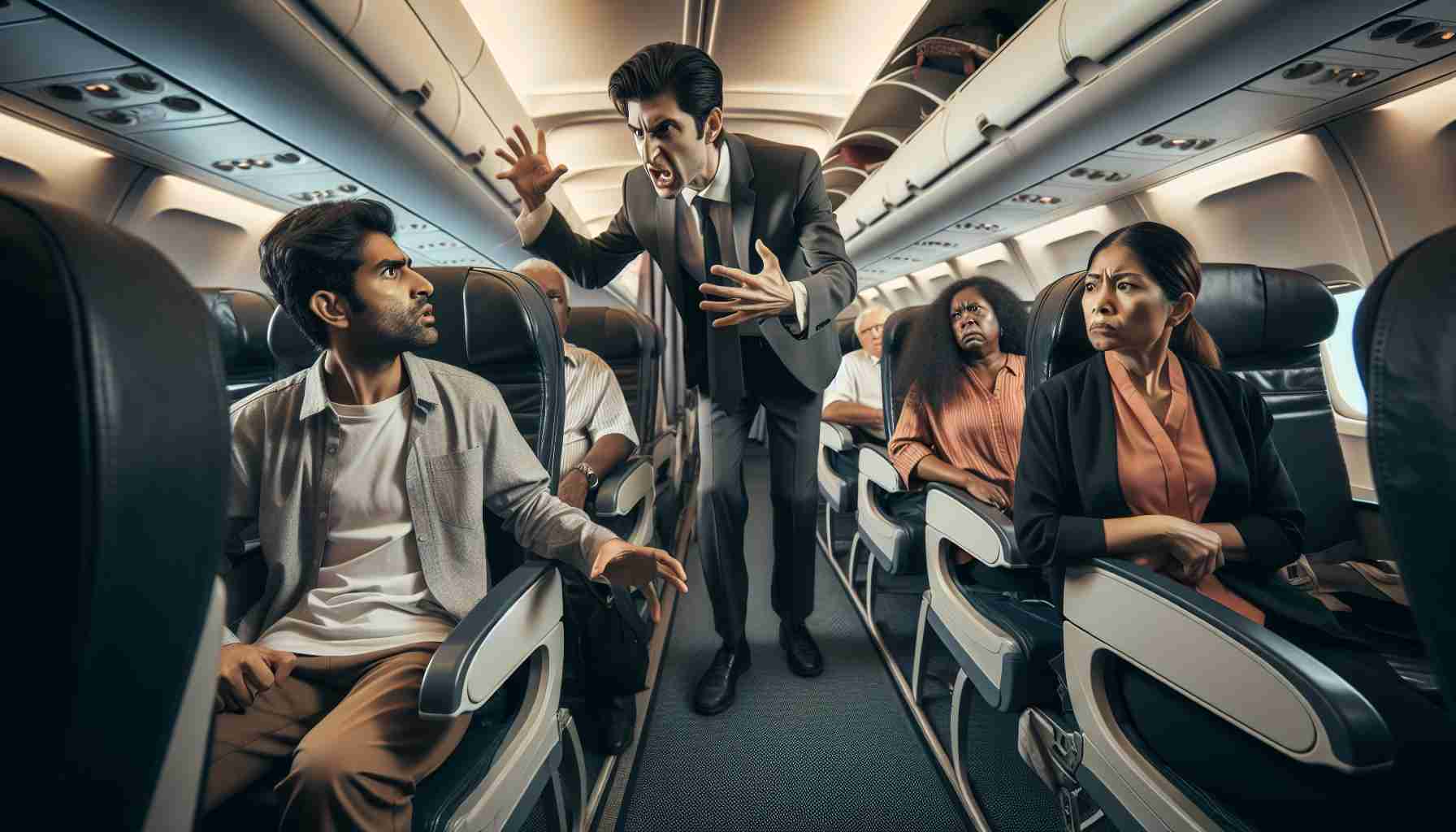American Airlines swiftly diverted a recent flight after a disruptive passenger in the first-class cabin began openly vaping. The incident unfolded mid-air, prompting the airline crew to ensure the safety and comfort of all passengers on board.
Unexpected Disruption
Instead of adhering to the flight regulations and respecting the rights of other travelers, the disruptive passenger chose to openly vape, creating an uncomfortable and potentially hazardous situation. The airline crew acted promptly to address the behavior and redirect the flight to ensure the well-being of everyone on board.
Ensuring Passenger Safety
The quick response from the American Airlines crew highlights their commitment to maintaining a safe and secure environment for all passengers. By taking decisive action in response to disruptive behavior, the airline demonstrated that the safety and comfort of passengers are their top priorities.
Zero Tolerance for Disruption
Passengers engaging in disruptive behavior, such as openly vaping in a confined aircraft cabin, not only violate airline policies but also compromise the safety and experience of others on board. American Airlines’ zero-tolerance approach sends a clear message that such behavior will not be tolerated and will be met with immediate intervention.
Swift Action to Address Disruptive Passenger Behavior
In a recent incident involving disruptive behavior on a commercial flight, Delta Air Lines showcased their swift response to ensure the safety and security of all passengers on board. The disruptive passenger, seated in the economy class section, began causing a disturbance by refusing to comply with the crew’s instructions during the flight.
Rapid Intervention
Upon noticing the unruly behavior of the passenger, Delta Air Lines took immediate action to address the situation. The flight attendants approached the disruptive individual in a calm and professional manner, attempting to de-escalate the tension and ensure the well-being of those on board. Despite initial resistance from the passenger, the crew effectively managed to contain the situation without causing further disruption to the flight.
Key Questions:
1. How did Delta Air Lines handle the disruptive passenger compared to American Airlines’ approach in a similar scenario?
2. What specific protocols are in place for airlines to address disruptive behavior effectively?
3. How do airlines determine when it is necessary to divert a flight due to unruly passengers?
Challenges and Controversies:
Addressing disruptive passenger behavior poses several challenges for airlines, including balancing the need to maintain safety and security with avoiding unnecessary diversions that may inconvenience other passengers. Controversies may arise regarding the perceived level of intervention by flight crews and the potential impact on the overall passenger experience.
Advantages and Disadvantages:
One advantage of taking swift action against disruptive passengers is the maintenance of a safe and comfortable environment for all travelers on board. By setting clear expectations and enforcing strict policies, airlines can deter disruptive behavior and uphold passenger safety. However, the disadvantage lies in the potential disruptions caused by diverting flights or intervening in incidents, which can lead to delays and inconvenience for other passengers.
For more information on handling disruptive passengers and airline safety protocols, visit Delta Air Lines website.
 An Unexpected Twist in the Battle Against Long COVID: What Scientists Are Testing Next
An Unexpected Twist in the Battle Against Long COVID: What Scientists Are Testing Next  The Unexpected Journey: How A Viral Trend Became a Multi-Billion Dollar Phenomenon
The Unexpected Journey: How A Viral Trend Became a Multi-Billion Dollar Phenomenon  PulteGroup Endeavors to Secure Investor Confidence Amid Dip in Earnings
PulteGroup Endeavors to Secure Investor Confidence Amid Dip in Earnings  The Florida Rocket Launch That Everyone Will Be Talking About: How to Catch It Live
The Florida Rocket Launch That Everyone Will Be Talking About: How to Catch It Live  High-Speed Pursuit on Utah’s I-80: Reckless Rampage Ends in Arrest
High-Speed Pursuit on Utah’s I-80: Reckless Rampage Ends in Arrest  The AI-Fueled Comeback: Can Twilio’s Next Act Revive Its Meteoric Rise?
The AI-Fueled Comeback: Can Twilio’s Next Act Revive Its Meteoric Rise?  The Battle of the Budgets: Why Google’s New Comparison Page Raises Eyebrows
The Battle of the Budgets: Why Google’s New Comparison Page Raises Eyebrows  Is Fidelity’s Stock Decline a Golden Opportunity for Savvy Investors?
Is Fidelity’s Stock Decline a Golden Opportunity for Savvy Investors?  Could QUALCOMM’s Bold Move Trigger a New Wave in the Semiconductor Market?
Could QUALCOMM’s Bold Move Trigger a New Wave in the Semiconductor Market? 